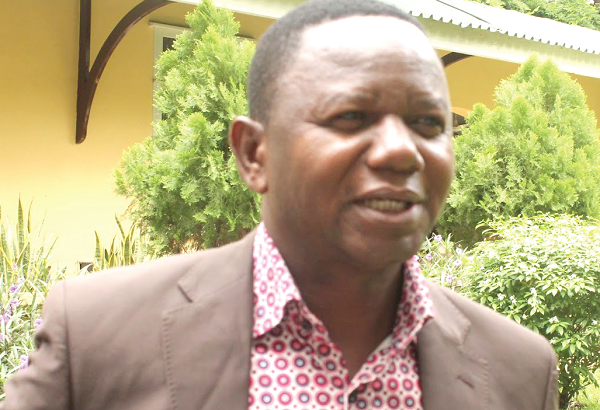
There must be paradigm shift in agric —
The General Secretary of the General Agricultural Workers Union (GAWU), Mr Edward Kareweh, has called for a paradigm shift in the approach to agriculture in the country to enable a significant growth in the sector.
He explained that the current system where funds were often allocated to the agriculture industry in general without specifically ensuring that various sub-sectors had been resourced or funded had proven to be inimical to the sector’s growth.
“The government must, therefore collaborate with key stakeholders to help push the kind of transformation needed to grow the agriculture industry,” Mr Kareweh told the Graphic Business on Tuesday, October 24 in Accra.
He said the portion of the agriculture budget allocated for real investment had to be looked at critically because the allocation was rather used for personnel emoluments, consultancy fees among others.
“If you take a chunk of the budget, then it may be broad but if you look at what actually goes to real investment within the sector, then it becomes too small and we do not get the expected outcome,” he said.
Breakfast meeting
Mr Kareweh was speaking in an interview ahead of the Graphic Business/Stanbic Bank Breakfast Meeting on agriculture at the Labadi Beach Hotel scheduled for Tuesday, October 31, 2017 on the theme, ‘Securing the Economy with Agriculture.’ The meeting is meant to provide policy makers and stakeholders with a common platform to deliberate on agriculture.
Key on that agenda is how the country can scale up investments in the agricultural sector to ensure the transformation of the economy.
Sector growth
For decades, the agricultural sector has suffered low investments, minimal technological infusion and general neglect, resulting in marginal growth and contribution to national output.
From 30.4 per cent in 2006, the sector’s contribution to total economic output, measured by gross domestic product (GDP), has declined to 18.9 per cent in 2016.
In 2015, growth in the sector dropped from 4.6 per cent in 2014 to 2.5 per cent, raising questions over the impact of various interventions aimed at lifting it.
To help reverse the trend, Mr Kareweh said the government must strictly implement the Maputo Declaration which, among other things, stipulates that not less than 10 per cent of budgetary allocation must be used for agricultural purposes.
Such a move, he explained, would help increase production in the agricultural sector by at least six per cent annually.
On his expectations of an improved agriculture sector, he said unless such a far-reaching tenet was upheld to transform agriculture, it would remain largely same.
Maputo Declaration
In July 2003 in Maputo, Mozambique, African Heads of States met and endorsed a Declaration on Agriculture and Food Security in Africa and also adopted the Comprehensive Africa Agriculture Development Programme (CAADP) framework.
A cardinal component of the declaration is that African countries will allocate and implement increases in spending on agriculture to at least 10 per cent of their annual budgets by 2008.
According to the declaration, such an increase in budgetary allocations to agriculture was to give meaning to the CAADP with the goal to help African countries reach a higher path of economic growth through agriculture-led development, which eliminates hunger, reduces poverty, food and nutrition insecurity and enables the expansion of exports.